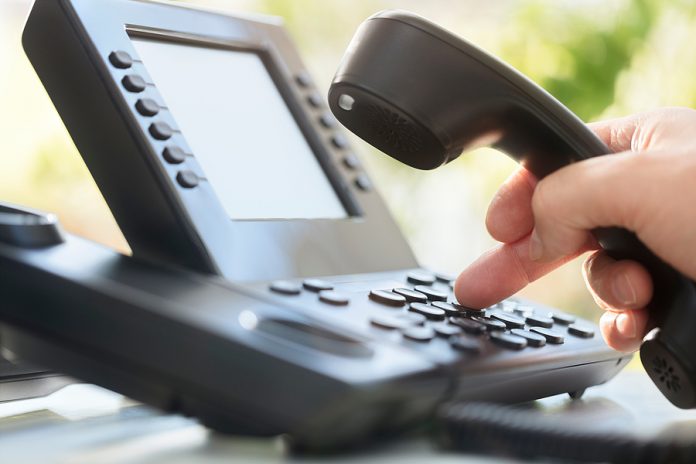The 5 Best Virtual Phone System Providers in the US - Kev's Best
The 5 Best Virtual Phone System Providers in the US - Kev's Best |
- The 5 Best Virtual Phone System Providers in the US - Kev's Best
- How disposable tech is putting businesses data at risk - Techradar
- Encrypted Phones — iPhone and Android Encryption - Reader's Digest
| The 5 Best Virtual Phone System Providers in the US - Kev's Best Posted: 16 Apr 2021 12:40 AM PDT A virtual phone system is essential for almost any business. Whether it is used for talking to customers or communicating with colleagues within the business, a virtual phone system is a highly convenient structure to implement that makes effective communication possible from wherever you may be. Various providers deliver this service in the US and each of their platforms comes with a variety of benefits. These are the top 5 virtual phone system providers in the US. Find out why they are trusted by businesses and the nature of the services that they could deliver to you and your company. #1 Talkroute |
| How disposable tech is putting businesses data at risk - Techradar Posted: 16 Apr 2021 12:23 AM PDT  It has become common practice for people to chase the latest technology trends. As tech becomes part of our everyday life, the lifecycle of our devices becomes smaller and smaller. This is posing a huge issue to the sprawl of data. About the author Rick Vanover is a Senior Director of Product Strategy at Veeam. With the lifecycle of tech shortening, many are abandoning old devices at second-hand stores and selling them to new owners without thinking about the data and personal information that is left on them. The unforeseen jump to working from home in 2020 for large swathes of the population meant many organizations became virtual entities. Their operations and output became cloud-dependent, and huge volumes of company data – accessible across a range of employee devices – were transferred online. IT management teams face a serious ongoing challenge of controlling and managing their organization's data online, which in many cases is near impossible. With data sprawling across company and personal devices, there is almost no control over it, especially in instances where staff sell their personal devices on to their next home, or throw them away. To add to this, wider workplace trends like BYOD (Bring Your Own Device) continue to gain popularity and make it harder for organizations to keep track of sensitive data. IT teams have less control over employees' personal devices as it is, and so protecting the data on them becomes a real difficulty. Issues such as lack of encryption or outdated operating systems can lead to potential hacks and data loss as well. This is something businesses need to consider when implementing a cyber security strategy in 2021 and beyond. This means educating staff in understanding the risks involved with discarding old devices and setting up the right protections within an organization too. Educating staff in the basicsThe first step in managing this is for IT teams to educate employees about the risks involved with using personal devices for work purposes and then eventually discarding them. Employees should be trained in the security practices of an organization and also understand how that translates to personal devices. Part of this should be educating staff on how to properly wipe the contents of their business smartphones if they eventually discard them to a second-hand store. This is not something that is considered by most organizations, but it should be. Employees also need to be briefed to understand how to identify potential malware, phishing, or ransomware attacks on their personal devices. If employees are able to identify these threats, it mitigates risk of data being lost. Ensuring the right protections are in place If educating staff fails, there are some protections IT teams can put in place to mitigate risk even further.
It is advisable, where possible, that IT teams automate these processes for staff, as this will free up their time and ensure that updates are routinely made by default. With the abundance of software available to automate such procedures, an organization's best IT brains can add more strategic value to the business rather than performing these tasks manually. Managing data in the new normalAs working from home became the new normal last year, it also became increasingly complicated to manage the sprawl of a company's data. While these agile work trends had been predicted for the next 5-10 years, organizations were not prepared for them to become so mainstream – almost overnight. As we look to the future, this is only going to become more and more complicated. The rapidly growing digitization of businesses across sectors is undoubtedly a significant undertaking, requiring clear objectives, strategy and buy-in at all levels. Understanding these challenges and breaking them down into smaller, more solvable areas to focus on is crucial for success. Protecting staff devices, for example, should be seen as a top priority, as it will help IT teams lay the groundwork for safer practice in the digital age. Ultimately, it is important for IT teams to understand all the risks associated with managing more distributed workforces, as companies take on more flexible working arrangements over the coming year. A huge part of this is of course understanding the risks that come with using personal devices, particularly in the process of discarding them or sending them to a new home.
|
| Encrypted Phones — iPhone and Android Encryption - Reader's Digest Posted: 11 Jan 2021 12:00 AM PST 
Don't let the term "encrypted phone" intimidate you. It's a feature you probably already have and use on your phone without knowing it—and that's a good thing.Encryption may sound like a tech buzzword, but even if you're not tech-savvy, encryption is probably a very important part of your life. More than likely, your bank, credit card companies, and even some social media sites that you may use, including WhatsApp, incorporate encryption to protect your data. Your phone probably has this capability, too. Here's what an encrypted phone means and how to use it to protect yourself from identity theft. What is encrypted data?Encrypting your device means that the data (such as credit card info, social security numbers, addresses, or any other extremely personal information) that is entered into the phone will be jumbled up, making it indecipherable to anyone who might be trying to steal your information. To unjumble the information, it has to be unlocked using a password, PIN, or another key that identifies you as the owner of the information, according to Tom Kirkham, founder and CEO of IronTech Security. "When you set a pin or passcode on your device and set up fingerprint or facial recognition, this is used to generate the key for encrypting and decrypting your device," says Jack Mannino, CEO at nVisium, a Virginia-based application security provider. Want to be extra safe? Here are eight apps security experts would never have on their phones. Why to encrypt your phoneEncrypted phones make it much harder for cybercriminals to gather your personal information because it is very difficult to decode encryption. Is encryption foolproof? "Device encryption is an added layer of security and a necessary step to keep hackers away; more often than not, cybercriminals are going to see a device is encrypted and just move on because it's too much work," says Kirkham. That said, "nothing is 100 percent foolproof when it comes to cybersecurity," he reminds us. There are a couple of downsides to cell phone encryption. "An important thing to keep in mind is that it does slow down your phone, depending on the amount of data and the age/speed of the phone," says Tim Koster, tech expert and founder of CleverCreations. A bigger caveat is that should you ever forget your PIN/password to your phone when it is encrypted, it is impossible to retrieve your data, Koster says. A backup would be the only way to retrieve the data. Both Android and iPhone devices fully support encryption out of the box nowadays, so there isn't much need for third-party encryption apps, advises Koster. iPhone EncryptionWhen your iPhone is locked, personal information is automatically encrypted, as is any data on the iCloud. Find out how to do it and the other iPhone privacy settings you should check right now. Android EncryptionSetting up encryption on your Android device is easy, even for those that don't usually change the default setting on their phones. While there are many different types of Android phones and the menu options vary, these directions should get you to where you need to go without a lot of steps.
Some Android devices, such as certain models from Vivo, Huawei, and OPPO can't be encrypted. If you try the steps and you can't find an encryption option, contact your service provider. They will be able to determine if your phone can be encrypted or not. Encryption can take up to an hour and can't be interrupted, so you won't be able to use your phone. Make sure your phone is plugged in while it is encrypting to prevent it from dying, too. If your phone dies while it is finishing the process you may lose all of your data. Make your password strongSince the data on your phone can be viewed as unencrypted when your phone is unlocked, it is important to make sure the method to unlock your phone is strong, just in case it ever gets lost or stolen. For example, a weak password like 123456) or PIN like 0000 may put a device at risk regardless of the encryption's strength. Make the password or PIN more complex, or use face recognition, your fingerprint, or a pattern to unlock your phone. Even with encryption, hackers can still do these four things with just your phone number. Sources: |
| You are subscribed to email updates from "best encrypted cell phone,best mobile encryption,what can you encrypt" - Google News. To stop receiving these emails, you may unsubscribe now. | Email delivery powered by Google |
| Google, 1600 Amphitheatre Parkway, Mountain View, CA 94043, United States | |








Comments
Post a Comment